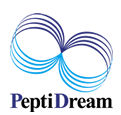预约演示
更新于:2026-02-07
RYZ-801
更新于:2026-02-07
概要
基本信息
药物类型 多肽偶联核素、治疗用放射药物 |
别名 225Ac-GPC3-RYZ-801、225Ac-RYZ-801、RYZ801 + [1] |
靶点 |
作用方式 调节剂 |
作用机制 GPC3调节剂(磷脂酰肌醇聚糖3调节剂) |
在研适应症 |
非在研适应症- |
原研机构 |
非在研机构- |
最高研发阶段临床1期 |
首次获批日期- |
最高研发阶段(中国)- |
特殊审评- |
登录后查看时间轴
结构/序列
使用我们的ADC技术数据为新药研发加速。
登录
或

关联
1
项与 RYZ-801 相关的临床试验NCT06726161
Phase 1/1b Single Arm, Open-label Trial of Theranostic Pair RYZ811 (Diagnostic) and RYZ801 (Therapeutic) to Identify and Treat Subjects With GPC3+ Unresectable Hepatocellular Carcinoma (HCC)
A single arm, open-label Phase 1/1b study of the theranostic pair RYZ811 (diagnostic) and RYZ801 (therapeutic) to identify and treat subjects with GPC3+ unresectable HCC
开始日期2024-11-15 |
申办/合作机构 |
100 项与 RYZ-801 相关的临床结果
登录后查看更多信息
100 项与 RYZ-801 相关的转化医学
登录后查看更多信息
100 项与 RYZ-801 相关的专利(医药)
登录后查看更多信息
35
项与 RYZ-801 相关的新闻(医药)2026-01-15
·小触核药
导 语
Introduction
近日,通瑞生物制药(成都)有限公司(通瑞生物)研发的1类放射性治疗药物“TRC003注射液”的临床试验申请获得国家药品监督管理局药品审评中心默示许可,同意开展拟用于治疗前列腺特异性膜抗原(PSMA)阳性的转移性去势抵抗性前列腺癌(mCRPC)的成年患者的临床研究。
在去年10月份的欧洲核医学大会(EANM 2025)上,由通瑞生物支持的两项关于225Ac-PSMA-CY313在转移性去势抵抗性前列腺癌(mCRPC)领域的研究,凭借其创新性与重要价值,获大会评审委员会高度认可,被评选为 “Top Rated Oral Presentation”(最受欢迎的口头报告) 。因此,推测此次申报很可能为该公司首款Ac-225核素的放射性治疗药物。
在Ac-225供应有望改善的预期下,全球制药巨头和创新生物技术公司早已开始争相布局基于Ac-225的靶向放射性药物。全球范围内,Ac-225核药的研发正进入一个高速发展期,据统计,截至2025年,全球已有超过70条Ac-225核药研发管线,其中超过20项已进入临床试验阶段,覆盖了从前列腺癌到血液肿瘤的多种恶性疾病,其中不乏已进入临床II/III期研究的重磅候选药物 。
前列腺癌:最热门的战场
前列腺癌是Ac-225核药研发最为集中的领域,主要靶点是前列腺特异性膜抗原(PSMA),这是一种在绝大多数前列腺癌细胞上高表达的蛋白质。
[225Ac]Ac-PSMA-617 (Pluvicto-α):这是诺华(Novartis)公司在其已上市的β粒子药物Pluvicto([177Lu]Lu-PSMA-617)基础上开发的α粒子版本。理论上,Ac-225的强效杀伤力有望克服对β粒子疗法产生耐药性的肿瘤,或对恶性程度更高的肿瘤提供更优的治疗效果。目前,诺华的[225Ac]Ac-PSMA-617注射液正在全球多地开展临床试验,包括针对转移性去势抵抗性前列腺癌(mCRPC)患者的I/II期研究 。其在中国的临床试验申请也已被国家药品监督管理局(NMPA)受理 。这是最受关注、也最接近商业化的Ac-225药物之一。
[225Ac]Ac-J591:由Weill Cornell Medicine和Actinium Pharmaceuticals联合开发,靶向PSMA的胞外域。该药物在早期临床试验中已显示出令人鼓舞的疗效,尤其是在mCRPC患者中观察到了显著的PSA(前列腺特异性抗原)水平下降和肿瘤消退。目前正在进行更深入的临床评估 。
[225Ac]Ac-PSMA-I&T:这是一种基于PSMA抑制剂的靶向配体,由慕尼黑工业大学等机构率先开展临床研究,同样在mCRPC患者中显示了高缓解率。多项学术研究和临床试验正在评估其安全性和有效性 。
实体瘤的广泛探索
除了前列腺癌,Ac-225核药的研发也扩展到了其他多种实体瘤。
神经内分泌肿瘤(NETs):靶向生长抑素受体(SSTR)是治疗NETs的成熟策略。基于Ac-225的SSTR靶向药物,如[225Ac]Ac-DOTATATE,被认为是现有Lu-177标记的SSTR药物(如Lutathera)的有力补充或后续治疗选择,尤其适用于对β粒子疗法不敏感或复发的患者,评估其在晚期NETs患者中的应用 。
[225Ac]Ac-FPI-2265:由Fusion Pharmaceuticals(已被阿斯利康收购)开发,是一款靶向神经降压素受体1型(NTR1)的Ac-225药物,用于治疗表达NTR1的实体瘤,正在进行进入II/III期临床试验。
[225Ac]Ac-FPI-2059:由Fusion Pharmaceuticals(已被阿斯利康收购)开发,靶向胰岛素样生长因子1受体(IGF-1R),正在进行针对多种实体瘤的I期临床试验 。
RYZ101([225Ac]Ac-DOTATATE):RayzeBio(已被BMS收购)的RYZ101([225Ac]Ac-DOTATATE)已进入III期临床,目前因同位素供应短缺被迫暂停,是进展最快的Ac-225药物之一 。
针对乳腺癌 、非小细胞肺癌等的Ac-225核药也在临床探索中。
血液系统恶性肿瘤
Ac-225同样在治疗白血病等血液肿瘤方面显示出潜力。
Lintuzumab-Ac225 (Actimab-A):由Actinium Pharmaceuticals公司开发,Lintuzumab是一种针对CD33的单克隆抗体,与放射性同位素Ac-225结合,形成Lintuzumab-Ac-225,CD33在大多数AML细胞上表达,以增强对AML细胞的打击能力。该药物已完成多项I/II期临床试验,并正在探索与其他药物的联合治疗方案 。
目前,全球Ac-225核药研发领域呈现出大型制药公司(通过收购)与创新生物技术公司并驾齐驱的格局。
· 诺华(Novartis)
2024年5月初,诺华宣布收购核药生物技术公司Mariana Oncology,诺华支付10亿美元预付款,以及7.5亿美元里程碑付款。Mariana的首发管线MC-339,是用于治疗小细胞肺癌的靶向核药。该候选药物由一种肽类小分子组成,经设计可携带放射性锕(Ac)有效载荷。此外,凭借其在PSMA靶向核药领域的深厚积累,其下一代核药225Ac-PSMA-617目前处于全球Ⅰ期阶段,用于治疗前列腺癌。
· 百时美施贵宝(BMS)
2024年初,百时美施贵宝(BMS)宣布完成了对RayzeBio的收购。此次收购的交易总额约为41亿美元,每股现金价格为62.50美元。将其进展最快的Ac-225药物之一RYZ101收入囊中,强势入局 。24年12月中百时美施贵宝重新取得了ABZ-706(相当于RYZ801)在大中华区开发和商业化的独家权利,该管线靶向磷脂酰肌醇蛋白聚糖3(GPC3),用于基于Ac的放射性疗法治疗肝细胞癌,目前正在进行IND研究。
· 礼来(Eli Lilly)
2023年10月礼来以14亿美元收购Point Biopharma,获得了Ac-225的泛癌FAP-α项目PNT2004及PSMA项目PNT2001。2024年5月礼来与Aktis Oncology达成了一项价值高达11亿美元的协议。Aktis Oncology是一家专注于开发新型α核素(靶向疗法的生物技术公司,该合作强化了礼来在α核素药物平台的能力。2024年6月底日,礼来与Radionetics Oncology达成战略合作,将共同推进靶向GPCR的小分子放射性药物。2025年2月礼来又与AdvanCell扩大合作,共同开发靶向α核素疗法。
· 阿斯利康(AstraZeneca)
2024年3月阿斯利康以高达24亿美元的价格收购了Fusion Pharmaceuticals,进入了放射性药物领域。Fusion是一家专注于精准核药开发的公司,利用α粒子的医学同位素,结合靶向癌细胞的抗体,精准狙击癌细胞。Fusion的管线资产包括225Ac-PSMA I&T(FPI-2265),225Ac-FPI-1434和FPI-2059等。这些项目针对前列腺癌、实体瘤等多种癌症类型,并处于不同的临床试验阶段。其中,FPI-2265为核心项目,在mCRPC患者的的治疗中显示出显著优势。此外,阿斯利康与海德堡大学和Euratom达成基于锕系元素的PSMA靶向放疗的全球独家许可协议。
· 拜耳(Bayer)
早在2009年就与Algeta合作开发Xofigo,并于2013年获批上市,用于治疗晚期骨转移型去势抵抗性前列腺癌。Xofigo上市后,销售额在2017年达到峰值(4.08亿欧元),后续开始逐年下滑。2023年5月拜耳与Bicycle Therapeutics达成战略合作,Bicycle将获得4500万美元的预付款,如果达到开发和商业化的里程碑,Bicycle可能获得总计高达17亿美元的款项;拜耳可获得Bicycle的专有肽,用于开发下一代靶向放射治疗,增强肿瘤相关研发管线。目前拜耳有两款核药225Ac-macropa-pelgifatamab (BAY3546828) 和225Ac-PSMA-Trillium(BAY 3563254),两款核药采用的核素均为Ac-225。
· 强生(Johnson & Johnson)
2017年,强生JJDC(Johnson & Johnson Development Corporation)通过领投Fusion Pharmaceuticals的2500万美元A轮融资,开始入局核药。2024年,Abdera完成了一轮新的融资,该轮融资由强生JJDC和Foresite投资,金额为3000万美元。
除投资外,目前强生公开的管线来看,首发核药资产是一款靶向HK2的核药JNJ-6420,采用的核素同样是Ac-225。
“
Actinium Pharmaceuticals
专注于α粒子疗法,拥有丰富的临床管线,尤其是在血液肿瘤领域 。
“
Clarity Pharmaceuticals
拥有独特的“SARTATE”螯合技术,并与Terra Power等供应商建立了稳固的Ac-225供应关系 。
“
Ariceum Therapeutics
主打药物225Ac-SSO110是一种锕-225标记的放射性药物,靶向SSTR2。该药物通过将Ac-225与特异性靶向肽结合,精准作用于表达SSTR2的肿瘤细胞,如广泛期小细胞肺癌(ES-SCLC)和默克尔细胞癌(MCC),旨在实现高效肿瘤杀伤同时减少对正常组织的损伤。
“
Defence Therapeutics
与加拿大核实验室(CNL)合作,将α粒子放射疗法Ac-225与Defence专有的Accum®递送技术相结合,进行临床前研究。
“
Abdera Therapeutics
依托先进的抗体工程 ROVEr™平台设计和开发用于癌症治疗的可调节精准放射性药物。Abdera的主要项目ABD-147是下一代精准放射性药物生物疗法,旨在将Ac-225递送至表达DLL3的实体瘤,用于治疗小细胞肺癌(SCLC)和大细胞神经内分泌癌(LCNEC)。
“
Ratio Therapeutics
专有研发平台Trillium™和Macropa™,使得开发具有药物动力学调制能力的适配异功能放射性药物,从而提升药物的可用性、肿瘤传递和肿瘤载荷。近日宣布,其首款核心治疗性放射药 [Ac-225]-RTX-2358 临床试验的首个队列已完成给药。该药物是一种高选择性成纤维细胞活化蛋白靶向放射治疗药物,以Ac-225为标记同位素,适用于治疗成纤维细胞活化蛋白阳性的复发或难治性软组织肉瘤患者。
“
Convergent Therapeutics
凭借对α粒子的了解和双靶向放射性核素治疗技术的灵活运用,已经开发了其主要管线产品CONV01-α(Ac-225 rosopatamab tetraxetan),是一种专有的、同类最佳的Ac-225标记放射抗体,靶向几乎所有前列腺癌细胞表面表达的蛋白质(抗原)。
“
Alpha-9 Oncology
Alpha-9的平台建立在系统性的分子设计方法之上,通过优化靶向配体、连接子和螯合剂,创造出在肿瘤中具有优异摄取和滞留能力,同时能最大限度减少脱靶效应的放射性治疗药物。Alpha-9的核心管线A9-3408是一种新型靶向黑色素皮质素1受体(MC1R)的Ac-225核素药物,用于治疗经标准疗法治疗后病情进展的MC1R阳性黑色素瘤患者,已于近日完成首例患者给药。
尽管与欧美发达国家相比,我国在 Ac-225 药物研发方面仍处于相对早期的阶段,但也在稳步行进中。
○
东诚药业控股的子公司蓝纳成(LNC)开发的[225Ac]Ac-LNC1011注射液,在2025年获得了国家药品监督管理局(NMPA)核准签发的药品临床试验批准通知书 。该药物拟用于治疗PSMA阳性表达的晚期前列腺癌患者。
○
辐联科技是一家具有国际背景的中国公司,[225Ac]Ac-FL-020注射液已于11月10日获得临床试验默示许可,拟用于治疗mCRPC。辐联科技的另一款AC-225产品FL-091已经在2024年7月授权给SK Biopharmaceuticals,该产品用于治疗靶向神经降压素受体1型(NTSR1)阳性的癌症。此次交易的总金额高达5.72亿美元,涵盖了首付款、研发及商业里程碑付款。此外,多条管线均涉及Ac-225核素。
○
诺宇医药布局了多条核药管线,其中涉及Ac-225核药研发管线,根据官网,目前处于临床前研究阶段,暂未有更多消息披露。
○
先通医药也在使用Ac-225进行早期的药物研发,该公司在成都温江的研发生产基地已经建成了全自动放射性药物生产线,并计划生产225Ac-抗体注射液。
○
威智知科研发管线中的225Ac-PSMA-VG01和225Ac-FAP-VG02均采用了Ac-225作为放射性核素,针对前列腺癌、纤维肉瘤激活蛋白(FAP)表达肿瘤等进行研发。
○
博锐创合官网在研管线中BRP-020、BRP-030与BRP-040项目明确提及使用Ac-225作为放射性核素,适应症为晚期实体瘤。
○
纽瑞特医疗官网显示有Ac-225采购相关的字样。根据公开信息,纽瑞特也在积极布局Ac-225等α核素药物的研发与生产,其研发平台覆盖Ac-225标记药物的开发,并具备相应的GMP生产能力。
○
景嘉航布局α核素和β核素的核药研发,与西安迈斯拓扑签署225Ac供应协议以获得225Ac的优先、稳定供应,并与中核秦同签署战略合作协议,以便在研发核药用核素的供应方面得到更好的保障。
○
2024年6月3日,西南医科大学附属医院的陈跃教授团队在中国临床试验注册中心登记了一项关于225Ac-TBM治疗骨转移的转化研究,旨在评估225Ac-TBM治疗肿瘤骨转移的疗效和安全性,及其对正常器官和肿瘤的辐射剂量。
结语 )
Conclusion
全球 Ac-225 核药研发已从早期探索进入了快速发展的临床验证阶段。巨头的纷纷入局,更预示着该领域巨大的商业潜力正被资本市场认可,有望在未来5-10年内迎来首批Ac-225药物的上市。虽然中国Ac-225核药产业仍面临诸多挑战,但其展现出的巨大潜力和快速发展的势头令人瞩目。在政策支持、资本助力和科研创新的共同推动下,中国有望在这一全球前沿的医疗领域中占据重要一席,为全球癌症患者带来新的希望。
2025-12-30
全球核药市场正以11.5%的年复合增长率扩容,根据Precedence Research数据,2023年全球核药市场规模为107亿美元,2030年有望达到228 亿美元,2024-2033年CAGR为11.5%。随着诺华首款放射配体疗法(RLT)国内获批、纽瑞特8亿元D轮融资落地等标志性事件接连发生,近百家企业扎堆布局的国内核药赛道,正从技术积累期迈入产业化爆发期,形成兼具全球竞争力与本土特色的产业生态。
全球核药市场规模,来源:东吴证券政策资本共振:赛道进入加速发展周期
政策层面,国家已构建多层次支持体系。《医用同位素中长期发展规划(2021-2035 年)》明确常用医用同位素的稳定自主供应目标,国家药监局发布的《关于改革完善放射性药品审评审批管理体系的意见》提出对临床急需的放射性药品上市许可申请给予优先审评审批,而2024年修订的《放射性药品管理办法》进一步规范放射性药品的研发、生产、经营、使用、监督管理等全流程审批流程,强化全链条质量管控与安全监管。
近年来,全球核药赛道资本活跃度持续提升,跨境并购与融资形成双轮驱动。阿斯利康24亿美元收购Fusion Pharmaceuticals、礼来14亿美元收购Point Biopharma,强化核素疗法与RDC布局;Artbio、Nuclidium等海外企业密集完成大额融资,资金聚焦新型核素与靶点创新。
国内核药赛道聚集近百家企业,产业推进与资本注入同步进行。其中,中国同辐、东诚药业、远大医药等为全产业链龙头,覆盖核药全产业链;先通医药、纽瑞特、核欣医药、和铂医药等创新新锐主攻细分领域;恒瑞医药、云南白药、科伦药业等跨界企业带着自身技术与资源进入核药领域。
全球玩家布局:国际巨头深耕中国,本土企业多点突围国际巨头:加速本土化布局,抢占市场先机诺华
核药领域的全球领军者,旗下两款核心产品构建起完整管线。2018年,Lutathera(177Lu-Dotatate)获批上市用于治疗 SSTR 阳性胃肠胰神经内分泌肿瘤后成为该领域标杆;Pluvicto(177Lu-PSMA-617,商品名:派威妥 ®)作为明星产品,2025年11月在国内一次性获批两项晚期前列腺癌适应症,成为国内首个获批的 PSMA 靶向放射配体疗法。该产品市场表现强劲,2024 年全球销售额达13.92 亿美元,2025 年前三季度销售额已达13.89亿美元,同比增长33%,目前第三项适应症上市申请已获CDE受理。为提升供应能力,诺华耗资6亿元在浙江海盐建设放射性药物生产基地,预计 2026 年底投产,此前通过进口供应与本土合作满足国内需求,并推进诊疗一体化中心试点以加速普及。礼来
通过并购快速切入核药赛道,2023年以14亿美元收购Point Biopharma,获得核心产品PNT2002(PSMA靶向RDC),目前处于III期临床阶段;2025年与 AdvanCell 达成合作,加码铅 - 212(212Pb)等新型核素疗法研发,AdvanCell的候选药物ADVC001已进入I/II期临床试验,主要用于治疗前列腺癌。阿斯利康2024年以24亿美元收购Fusion Pharmaceuticals,获得了Fusion的多款在研RDC产品管线,包括处于II期临床阶段的FPI-2265(靶向前列腺特异性膜抗原。用于治疗转移性去势抵抗性前列腺癌)和AZD2068(靶向EGFR和cMET标志物,用于晚期实体瘤的I期研究)。以补充阿斯利康的肿瘤学产品组合,推动更精准的癌症治疗方法,减少对传统化疗和放疗的依赖。此外,阿斯利康于2024年6月投资核药CDMO公司Nucleus RadioPharma,强化从研发到生产的全链条能力。拜耳拜耳制药的Xofigo是全球首个α粒子靶向药物,其有效成分能够靶向骨转移。这款药物于2013年便已获得美国食品药品监督管理局(FDA)的批准,并在2020年8月进一步获得国家药品监督管理局(NMPA)的批准,正式上市。Xofigo是一种镭223二氯化物放射性药物,主要用于治疗伴症状性骨转移且无已知内脏转移的去势抵抗性前列腺癌患者。以经典产品 Xofigo(氯化镭 223)奠定骨转移前列腺癌治疗地位,近年转向 α 粒子疗法,通过与 Bicycle 合作开发新型RDC,聚焦差异化靶点布局以维持竞争力。百时美施贵宝
BMS于2023年底以41亿美元收购核药企业RayzeBio,一举获得其基于锕-225的技术平台、核心管线及生产基础,以此奠定核药布局的核心根基。这一收购不仅带来了靶向SSTR2的核心药物RYZ-101(有望成为首款FDA批准的锕-225类核药),还纳入了靶向GPC3、用于肝细胞癌治疗的RYZ-801(2024年底进入临床)及多款临床前候选药物。
管线拓展方面,BMS进一步通过合作强化差异化布局。2025年6月,其旗下RayzeBio以最高13.5亿美元从Philochem获得OncoACP3的全球权益,该药物靶向前列腺癌新靶点ACP3,兼容性镥-177与锕-225双核素,肿瘤特异性优于主流PSMA靶点,可同步覆盖诊断与治疗场景,避开热门靶点的激烈竞争。
生产与供应链保障上,BMS印第安纳波利斯的核药生产设施已全面投产,用于支撑临床阶段药物供应,同时持续扩大该基地规模以满足未来商业化需求,缓解锕-225等关键核素短缺问题对研发进度的影响。
国内企业:全产业链布局与细分赛道突破并行1. 全产业链龙头:构建核素 - 药物 - 商业化闭环
中国同辐
国内核药龙头,覆盖诊断(锝[99mTc]、氟[18F]显像剂)和治疗(碘[131I]、镥[177Lu])全链条,产品出口70余国。研发端布局镥[177Lu]-DOTATATE(神经内分泌肿瘤)、钇[90Y]微球(肝癌)等新型核药,搭建双靶点诊疗一体化平台,依托核工业体系优势保障核素稳定供应。
东诚药业
2024年核药营收占比35.28%,通过收购安迪科构建“核素供应 - 研发- 生产 - 配送”全产业链。核心产品包括18F-FDG(肿瘤诊断)、云克注射液(类风湿治疗),靶向PSMA/FAP的RDC药物进入临床,氟[18F]思睿肽(前列腺癌诊断)处于III期阶段,国内布局30个核药房,搭建起完善的配送网络。
远大医药
RDC领域领军者,拥有10款全球创新RDC药物,覆盖8大癌种。核心产品包括钇[90Y]微球(肝癌治疗)、TLX591-CDx(前列腺癌诊断),后者在国内III期试验中总体阳性预测值达94.8%,全球年销售额超5亿美元;与德国ITM合作推进ITM-11(神经内分泌瘤治疗)国际多中心III期试验,全球化布局成效显著。2. 创新新锐:大额融资加持,管线快速推进
纽瑞特医疗:具备放射性微球生产能力的企业,2025年完成8亿元D轮融资,深创投、人保资本等联合领投。核心产品为本土化钇[90Y]炭微球注射液(肝癌治疗),打通“核素制备 - 药物研发 - 商业化”全链条,自主研发的锗镓发生器实现出海,III期管线NRT6003剑指肝癌适应症。
无锡诺宇:凭借自主构建的专有核药技术平台快速发展,打造了近十款诊疗一体化核药产品管线(含全球首创与同类最佳药物),已获得中美两地共计8项临床批件。核心管线肾癌诊断核药68Ga-NYM005、前列腺癌诊疗一体化核药68Ga/177Lu-NYM032步入临床阶段,其中肾癌诊断核药预计2026年提交上市申请,成为核药新锐企业中的管线推进标杆。
辐联医药:聚焦α核素(225Ac)和PSMA靶向药物,核心管线[225Ac]Ac-FL-020(下一代PSMA疗法,用于治疗转移性去势抵抗性前列腺癌)于2024年获FDA快速通道资格及IND批准,进入全球I期临床。凭借α核素高杀伤性及专有UniRDC™平台优势,实现肿瘤部位高摄取与全身快速清除,在实体瘤治疗中形成差异化竞争力。
先通医药:2025年5月递交港股IPO申请,专注诊疗一体化布局,管线涵盖肿瘤学、神经退行性疾病、心血管疾病三大领域,共15项资产,其中8项处于临床或IND支持性阶段。核心产品包括阿尔茨海默症PET示踪剂XTR006、神经内分泌肿瘤治疗药物XTR008(177Lu标记SSTR靶向放射配体)等,XTR008已完成III期注册临床试验并提交NDA,临床数据显示196例患者随机分组,结果积极。
核欣医药:聚焦双靶点创新,核心产品68Ga-HX01(全球首创双靶点PET示踪剂,靶点αvβ3/CD13,用于胰腺癌早期诊断)于2022年6月获NMPA临床批件,现已进入I期临床。该产品采用差异化靶点设计,避开PSMA/SSTR等热门靶点的同质化竞争,获得资本重点关注。
和铂医药:2025年12月宣布与蓝纳成达成长期战略合作,共同强化核药布局。依托其核心的全人源重链抗体(HCAb)技术平台,聚焦多特异性核药研发,HCAb天然缺失轻链,具备小尺寸易穿透、高稳定性、全人源序列低排异等优势,可实现“即插即用”的功能设计,为RDC药物的精准靶向与高效杀伤提供技术支撑。双方重点推进针对实体瘤的RDC管线,聚焦解决传统疗法耐药及冷肿瘤治疗难题,独特的技术路径有望在差异化靶点布局中占据先机,进一步丰富国内RDC创新生态。
3. 跨界转型玩家:复用技术经验,快速切入赛道恒瑞医药
恒瑞医药作为国内创新药企龙头,在放射性核素偶联药物(RDC)领域构建了多靶点、多管线的系统性布局,覆盖神经内分泌瘤、前列腺癌、晚期实体瘤等多个适应症,已有多款核药推进临床研发。
在核心管线方面,恒瑞打造了多组 “诊疗一体化” 产品组合及差异化创新药。其中,镥 (177Lu) 氧奥曲肽注射液(治疗用)与镓 (68Ga) 伊索曲肽注射液(诊断用),针对晚期胃肠胰神经内分泌瘤开展精准诊疗;针对前列腺癌,布局了多款靶向 PSMA 靶点的产品,覆盖诊疗全环节;靶向 FAP-α 的 HRS-6768 注射液则进一步拓宽了晚期实体瘤治疗赛道。
技术与产业链支撑上,恒瑞联合天津核工业理化院等机构组建创新联合体,实现 64Cu 等医用同位素的自主批量生产,为核药研发生产筑牢基础云南白药
云南白药2022年起涉足核药,聚焦肿瘤诊疗一体化并优先布局前列腺癌PSMA靶向赛道,同年9月从北大相关机构引进对应核药专利并启动研发,2023年7月成立全资子公司云核医药(天津)统筹核药研发、临床样品生产及注册;为支撑管线推进,公司建成的天津核药研发中心于2024年10月获辐射安全许可证,具备核药研发及临床样品生产能力,核心管线同步推进,诊断类INR101注射液2024年获临床批件、2025年启动Ⅲ期,治疗类INR102注射液也获临床批件并进入Ⅰ期,目前已通过系列动作形成核药研发转化闭环,短期聚焦PSMA诊疗一体化落地。科伦药业
科伦药业通过控股子公司科伦博泰切入核药赛道,核心聚焦放射性核素偶联药物(RDC),重点布局肿瘤精准诊疗领域。2023年9月与西南医科大学附属医院达成合作,获RDC药物TBM-001(后称SKB107)全球独占性研发及商业化许可,双方还同步推进多款RDC药物联合开发。核心管线SKB107进展迅速,2025年3月便获国家药监局临床批准,拟用于治疗晚期实体瘤骨转移治疗,该药物凭借小分子靶向配体与放射性同位素结合的设计,实现精准靶向治疗。技术突破:RDC 成核心赛道,核素国产化加速
RDC(放射性核素偶联药物)作为核药领域的创新主流方向,凭借 “诊疗一体化” 优势重塑精准医疗格局。与ADC相比,RDC以放射性核素为载荷,通过β或α射线实现肿瘤细胞杀伤,无需进入细胞内即可发挥作用,在实体瘤治疗中更具优势,且不易产生耐药性。国内RDC研发已进入临床收获期,先通药业、瑞迪奥的诊断用 RDC 产品率先申报上市,中国工程物理研究院联合先通医药开展的镥 [177Lu]-Dotatate临床试验进展顺利,有望成为国内首款获批的治疗用同类产品。
核素国产化是RDC发展关键,国内已实现多项突破:中国工程物理研究院建成镥[177Lu]生产线,打破国外垄断;中核集团建成镥-177生产基地,年产能超1万居里,能满足全国需求;裂变钼[99Mo]、碘[131]实现自主供给,使RDC研发成本大降。但高端核素供应仍有短板,锕[225Ac]等α核素全球产量稀少,国内尚未实现规模化量产,制约新一代RDC研发。产业进阶:机遇背后的核心挑战与突破路径
核药产业在迎来发展机遇的同时,也面临着多重亟待破解的核心挑战,成为制约产业进阶的关键瓶颈:一是监管体系有待完善,相关标准界定不明确,直接增加了企业的合规成本与研发不确定性;二是商业化进程受阻,其中医保准入难度大是核心痛点之一,叠加具备核医学科的医院数量有限,双重因素导致核药渗透率难以提升;三是配套设施建设滞后,核药房的布局与产能规模不足,难以匹配行业快速增长的需求。
但硬币的另一面是,国内核药产业也正站在产业化爆发的黄金拐点,同时迎来了需要直面挑战、闯关破局的关键节点。当前赛道已经形成了明确的成长动力:头部企业在不断夯实全产业链的基础,创新新锐在细分赛道精准发力、寻求突破,跨界企业也带着自身技术和资源优势赶来加码;再加上政策的持续支持、核素国产化的稳步推进,以及RDC技术进入临床收获期带来的红利,这些力量拧成一股绳,为突破行业瓶颈提供了扎实的基础。
把目光投向未来,3-5年将是国内核药产业从“有”向“优”升级、从“跟跑”逐步实现“局部领跑”的关键窗口期。对企业来说,想要在全球核药市场站稳脚跟,关键还是要聚焦核心技术,攻克高端核素量产这类“卡脖子”难题,搭建起自身的技术和产业链壁垒。至于整个核药赛道的成熟,最终还是要落到医疗的核心意义上——让曾经偏“小众”的精准核药,能真正走进更多医院诊室,成为更多患者的治疗新选择。
2025-11-28
目前暂无权威统一的全球核药公司排名榜单,但可根据各公司在核药领域的市场份额、研发投入、产品管线及市场影响力等因素,梳理出以下大致排名情况:1. 诺华(Novartis)· 地位:全球核药领域绝对龙头· 优势:拥有lutathera、pluvicto两款重磅核药产品,2024年核药销售额超21亿美元;通过多次收购构建起完善的核药研发平台和产品管线,覆盖前列腺癌、神经内分泌肿瘤等多种适应症。2. 拜耳(Bayer)· 地位:核药领域传统巨头· 优势:旗下xofigo是全球首款α粒子放射性药物,虽市场表现相对平稳,但仍是前列腺癌骨转移治疗的重要药物;近年通过收购加强在靶向α疗法领域的布局,管线中有多款临床阶段核药。3. 礼来(Eli Lilly)· 地位:核药领域积极扩张者· 优势:通过收购point biopharma、aktis oncology等公司快速切入核药赛道,产品管线涵盖前列腺癌、神经内分泌肿瘤等领域,核心产品pnt2002处于临床后期阶段,市场潜力较大。4. 阿斯利康(AstraZeneca)· 地位:核药领域新晋玩家· 优势:2024年收购fusion pharmaceuticals后,获得fpi-2265、azd2068等在研核药,聚焦α核素疗法和放射性偶联物开发,未来有望成为核药市场重要力量。5. 百时美施贵宝(BMS)· 地位:聚焦α核素疗法的领军企业· 优势:收购rayzebio后,在基于锕-225的放射治疗领域建立领先地位,ryz-101、ryz-801等产品处于临床阶段,覆盖小细胞肺癌、肝细胞癌等多种实体瘤。6. 东诚药业· 地位:中国核药全产业链龙头· 优势:国内核药市场占有率较高,产品涵盖诊断和治疗用核药,拥有多个在研诊疗一体化核药项目,产业链布局完善,生产中心覆盖国内大部分地区。7. 远大医药· 地位:核药抗肿瘤诊疗领军企业· 优势:易甘泰钇[90y]微球注射液在国内肝癌治疗领域占据重要地位,通过全球化布局构建起覆盖多癌种的核药研发平台,成都温江生产基地实现全产业链闭环。8. 恒瑞医药(天津恒瑞)· 地位:核药领域后起之秀· 优势:推进多款放射性核素偶联药物进入临床,涵盖前列腺癌、神经内分泌肿瘤等领域,研发体系完善,生产设施布局逐步成熟。9. 中国同辐· 地位:国内放射性药物主要供应商· 优势:产品线丰富,覆盖骨、心脏、脑、甲状腺等器官的显像及疾病治疗,拥有核素生产、药物研发、销售网络全链条,出口覆盖多个国家。10. 核欣医药· 地位:创新核药研发代表企业· 优势:全球首个双靶点治疗性核药177lu-hx02注射液获批临床,专注于胰腺癌等难治肿瘤的精准诊疗,技术平台具有独特性。以上排名仅供参考,核药领域发展迅速,各公司竞争格局可能随产品研发进展、市场策略调整等因素发生变化。
100 项与 RYZ-801 相关的药物交易
登录后查看更多信息
研发状态
10 条进展最快的记录, 后查看更多信息
登录
| 适应症 | 最高研发状态 | 国家/地区 | 公司 | 日期 |
|---|---|---|---|---|
| 肝细胞癌 | 临床1期 | 日本 | 2025-01-28 | |
| GPC3阳性肝细胞癌 | 临床1期 | 美国 | 2024-11-15 |
登录后查看更多信息
临床结果
临床结果
适应症
分期
评价
查看全部结果
| 研究 | 分期 | 人群特征 | 评价人数 | 分组 | 结果 | 评价 | 发布日期 |
|---|
No Data | |||||||
登录后查看更多信息
转化医学
使用我们的转化医学数据加速您的研究。
登录
或

药物交易
使用我们的药物交易数据加速您的研究。
登录
或

核心专利
使用我们的核心专利数据促进您的研究。
登录
或

临床分析
紧跟全球注册中心的最新临床试验。
登录
或

批准
利用最新的监管批准信息加速您的研究。
登录
或

特殊审评
只需点击几下即可了解关键药物信息。
登录
或

生物医药百科问答
全新生物医药AI Agent 覆盖科研全链路,让突破性发现快人一步
立即开始免费试用!
智慧芽新药情报库是智慧芽专为生命科学人士构建的基于AI的创新药情报平台,助您全方位提升您的研发与决策效率。
立即开始数据试用!
智慧芽新药库数据也通过智慧芽数据服务平台,以API或者数据包形式对外开放,助您更加充分利用智慧芽新药情报信息。
生物序列数据库
生物药研发创新
免费使用
化学结构数据库
小分子化药研发创新
免费使用


